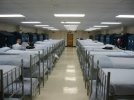How so? What specific problems do we have today that can be alleviated by more liberal arts studies? With the possible exception of actual history classes?
Liberal arts education teaches you how you think. A skill that is in woefully short supply these days and a skill that is useful for a lifetime.
Engineering, accounting, computer science and many other degrees are basically (highly necessary) jobs training programs that could be done quite differently.
Of course, in real life, there are good engineering programs that have substantial and high quality liberal arts components. But there are also plenty that graduate people knowing how to engineer a bridge, but were only taught how to engineer a bridge. So, when they get promoted they don't have the skills necessary to be a good boss, deal with suppliers, write proposals, run a company, etc. I'm sure everyone here has worked with someone who was "peter principled" into a job they are not qualified to do.
And, of course, as you point out, history matters. Especially in a democracy, history matters. How can we expect people to vote for reasonable representatives if their knowledge of history is lacking.
Or they only speak one language, robbing them of the opportunity to know other cultures better.
Or someone who hasn't studied macroeconomics, so doesn't understand that looking at an economy through the lens of a checkbook ledger misses some pretty important stuff.
Or someone who hasn't studied politics, so has no idea what the difference between utopian socialism, scientific socialism, communism, marxism, anarchism, laissez-faire capitalism, libertarianism, fascism, monarchy, democratic republics, etc, so votes for people with charisma, money and/or good hair instead of people qualified to run large countries in a fashion that can form a more perfect union, establish justice, insure domestic tranquility, provide for the common defense, promote the general welfare, and secure the blessings of liberty to ourselves and our posterity. You'll note that list is not achievable without a liberal arts education, which is because the founding fathers had one, thought it valuable to examine things through multiple lenses and made sure that it was part of the country from the very beginning.
Or people who haven't studied ethics, so don't even have the vocabulary to balance beneficence, justice, autonomy, utility, deontology, rights, virtues, etc against one another when making decisions.
But you asked for "specific problems" (which I would argue probably misses the point to begin with).
There is a war in europe with a nation baselessly invading another. Liberal arts provide the background necessary to decide which side to support, how to support them and how to prevent such things in the future.
There are multiple central american countries that are so dangerous that people flee, embarking on a journey (which is itself dangerous) across Mexico to try and get to the US. A liberal arts education provides the tools necessary to understand that the problem isn't with Mexico (as a
shocking number of Americans misunderstand), but with central america, the frameworks to think about how to humanly deal with the problem once people get to the US, the knowledge of history necessary to influence change in central america, an understanding of economics to know that "the illegals" are not stealing pieces of a fixed size pie but increase the size of the pie, benefit the nation and how this has benefit has been in the US for almost 250 years.
There was a global pandemic in which people skilled in some things, but not in broad thinking, were unable to understand information about the virus, the treatments, the vaccines, the public health policies, the economic responses, etc.
There is currently a housing crisis in the US which is making housing unaffordable and about which most people are ill equipped to attempt a rational discussion about solutions and an alarming number don't have the ethical background to think about the plight of the many that are being disenfranchised.
The US is aging. Rapidly. People are, almost intentionally, unwilling to think about what that will mean in the future and plan accordingly. This relates to the immigration issue above also, but most people don't connect the two.
In the future, there will be almost no need for human labor. Almost no one is thinking about what happens as that transition occurs. Even today, there are almost no jobs that someone with a low IQ can do and support a family. Do we just let them starve? Or live on the streets? Because that's what is happening currently as automation continues its inexorable path to efficiency.
I'm sure you can think of many more if you spend some time on it. But
all of the above are the kinds of things that require a multidisciplinary background like that which starts with a liberal arts education. None will be solved by a single field of study.



www.wbay.com


www.britannica.com
